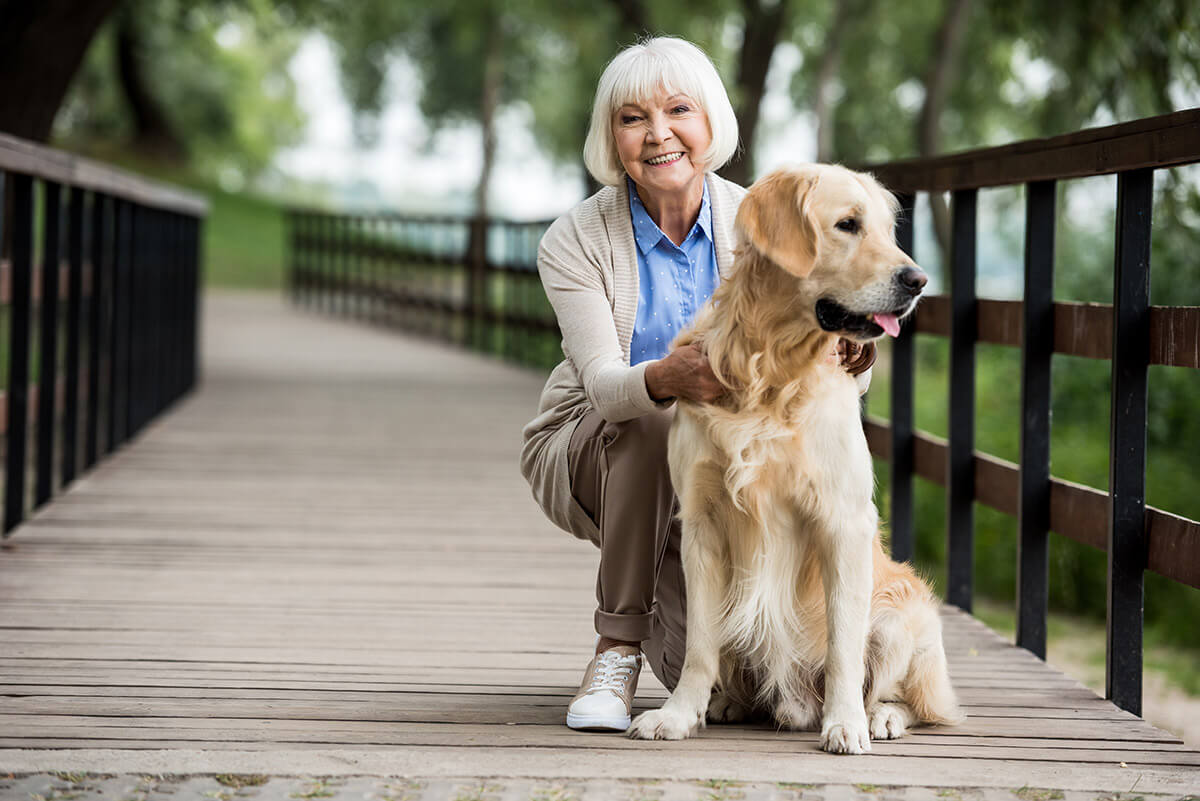Our first pet is often the most memorable one – a fluffy animal, a fish won from a game we played, or maybe something unusual like a reptile or amphibian.
For those who love animals from a young age, it is not surprising that pets have remained our faithful companions throughout our lives. From our first dog or cat when we ventured out on our own and decided it was time to try out some responsibility before having kids, to the family dog who was so wonderfully protective of our children, to the cat who knew exactly when we needed a snuggle to overcome a lousy day, pets are an intrinsic part of many of our lives, perhaps even more than we know.
A recent research project put forth by the UCLA Medical Center found that visits with a friendly dog of just 12 minutes help increase heart and lung performance and decrease anxiety in adults. As far back as 1980, a study showed that people who had heart attacks who were dog owners lived significantly longer than those who did not own a pet.
There are plenty of reasons to continue owning and caring for pets into your golden years, but if you need convincing, here’s a few more kernels of information from our own hearts and minds to cold hard science.
- We love to care. It’s a fact of life that as our children and grandchildren get older, they’ll focus more and more on their own lives and less and less on ours. That doesn’t mean we stop wanting to have responsibility or stop playing the role of caregiver in our elder years. Even the most autonomous of pets – we’re looking at you, kitty cats – needs attention and basic needs met, and this is a perfect way to meet those needs with a creature that requires some care, but not our undivided attention.
- We love to love. On a daily basis I get approached by our family dogs – a beagle and a golden retriever – who are looking for nothing more complex in the world than a scratch of the ears, a tickle on the tummy, and a few words of praise. It makes them happy, and seeing that makes us happy. It’s science, you can’t argue it!
- Our pets know us. One of the most poignant bumper stickers I’ve ever seen is the ones with a cat or a dog that ask the rhetorical question, “Who adopted who?” While some will argue that animals mostly live to eat, sleep, and reproduce, those of us who have had wonderful pets over the years know they desire far more than that. The bonds we form with our pets are every bit as real and can be every bit as powerful as those we share with our two-legged family members. In times of loss, sadness, depression, and anxiety, our pets are a wonderful comfort to us because they know how to read us.
- They get old too. We often forget that there are senior dogs and cats seeking places of comfort, just like we are as we enter our retirement years. A rambunctious puppy might not be the best fit for you, but an older dog or cat, well-trained and in need of affection, can be the perfect companion.
- They make us feel better. Even for some of the more terrifying age-related illnesses such as Alzheimer’s Disease, there is proven research that interaction with animals can do wonders for our behavior and our state of mind. A study by Mara M. Baun of the University of Texas-Houston School of Nursing revealed that visits from therapeutic dogs and the introduction of an aquarium into a dining hall drastically decreased the number of behavioral disturbances for Alzheimier’s patients while also increasing their appetites, resulting in healthy weight gain.
Even without the above evidence, ask any of the millions of seniors who are still animal lovers through and through, and they’ll likely affirm their belief that pets should be a part of our lives for as long as we want them to be.
As the great Charles Schultz once said through his alter ego, Charlie Brown, “Happiness is a warm puppy.”
Rittenhouse Village At Northside provides a range of senior living programs to help support a healthy and happy lifestyle for our residents. We also offer several senior living options for our residents to choose from. Contact us today at 317.575.9200 for more information.







